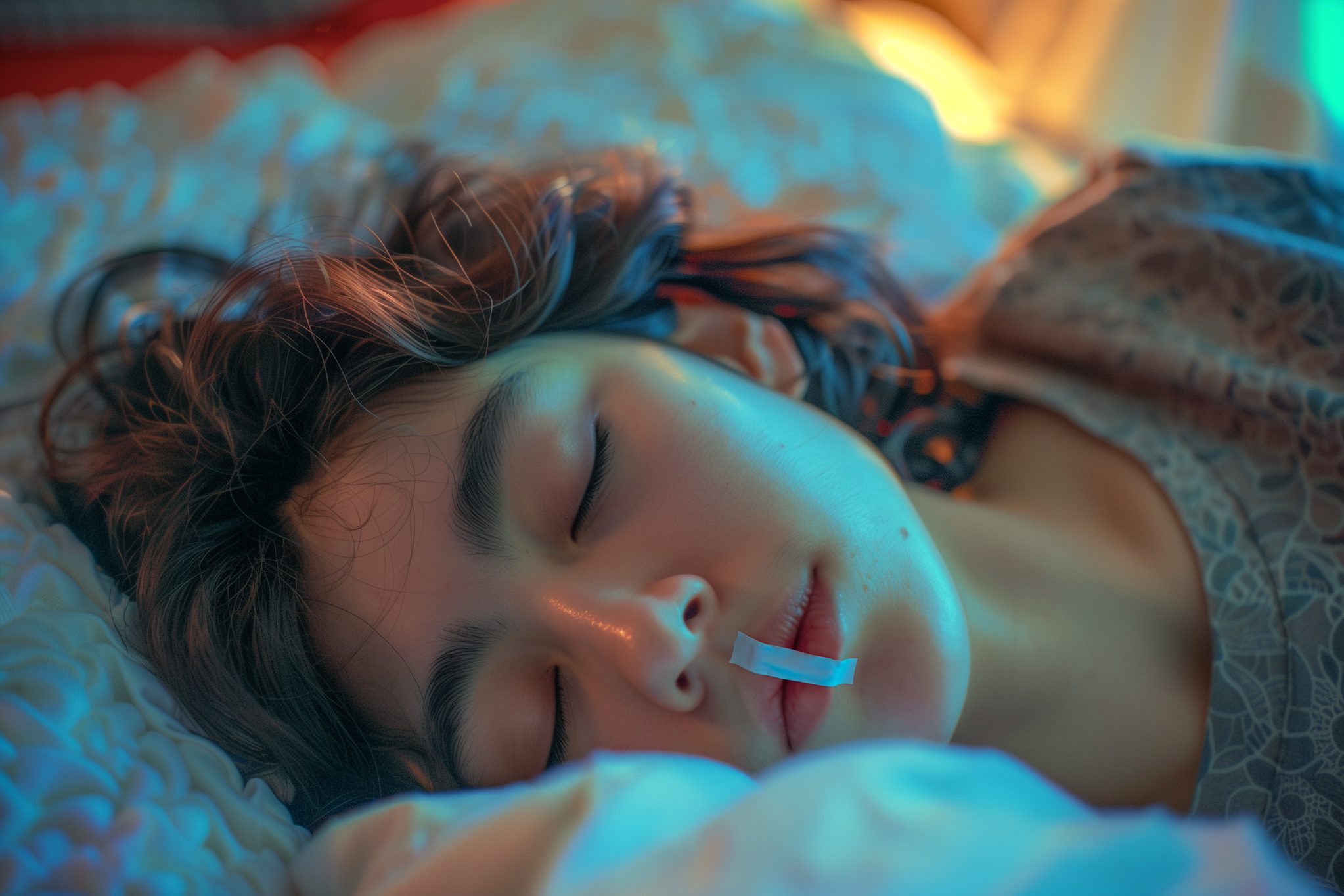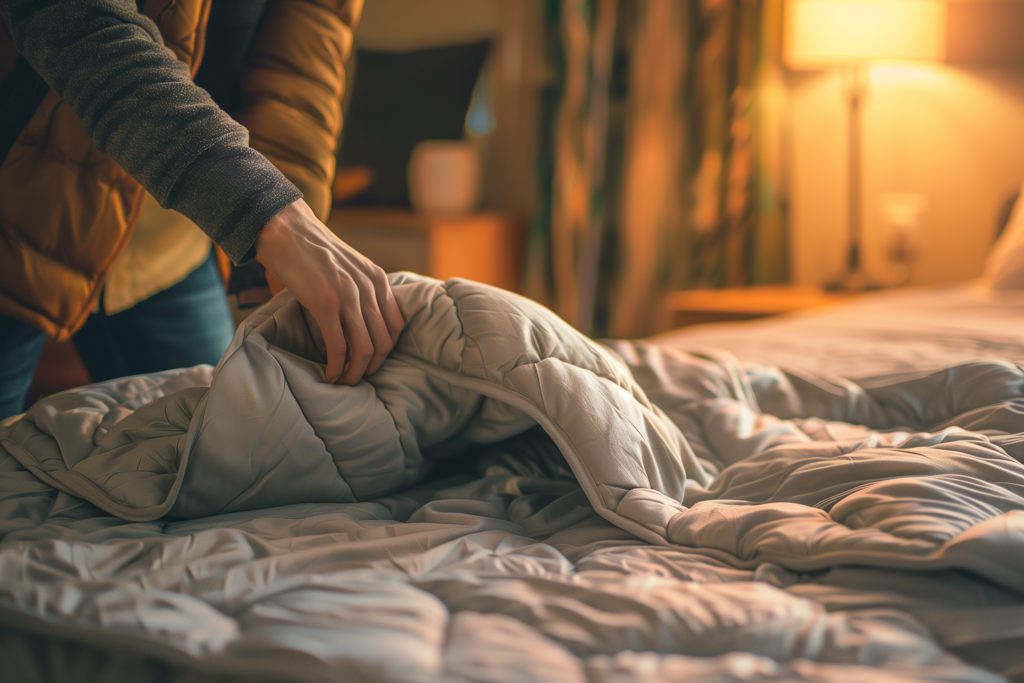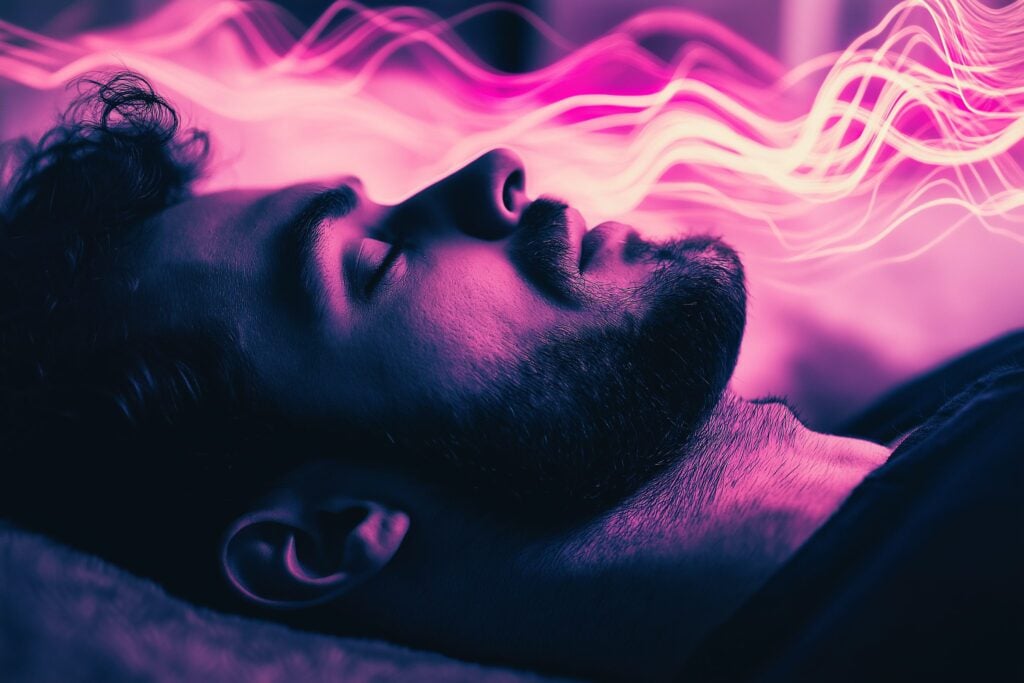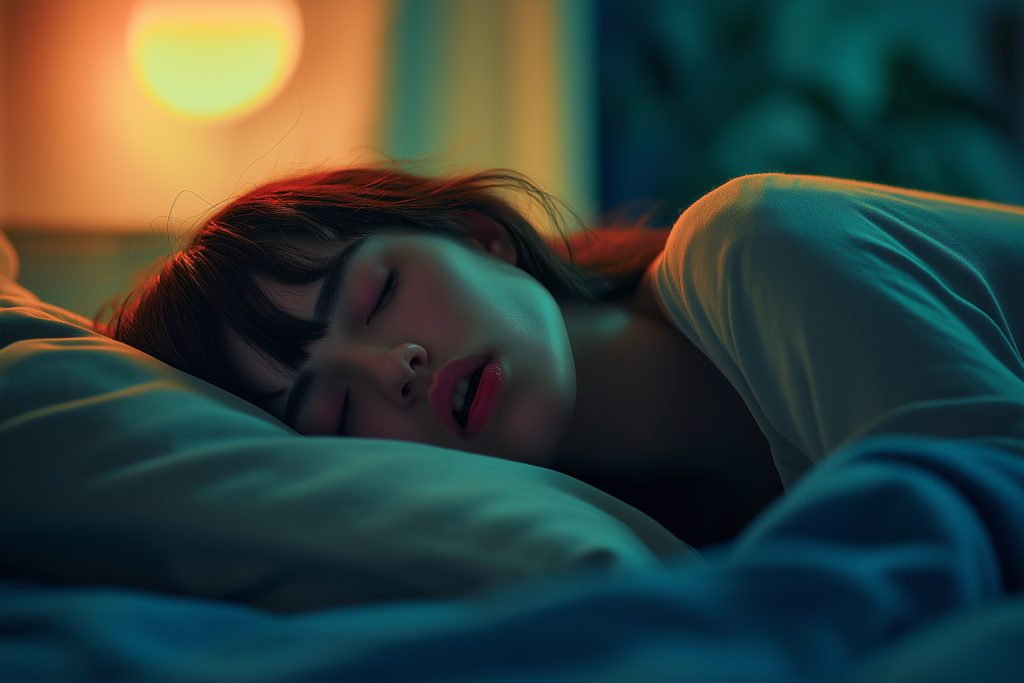
Understanding Mouth Taping
Mouth taping, a practice that is trending on social media, involves putting tape on your mouth while you sleep. It’s said to have many benefits.

Mouth taping is a viral sleep hack that you might have seen on social media. Stars like Ashley Graham and Gwyneth Paltrow swear by it. Graham says that it has given her the best quality sleep she’s ever had. So, what is mouth taping and what’s the science behind it? Is it really the ticket to a better night’s sleep? Let’s take a closer look at this trend.
What Is Mouth Taping?
Mouth taping is just as it sounds. You literally tape your mouth shut at night. You place a small piece of skin-safe tape, made specifically for mouth taping, over your lips while you sleep. Taping your mouth forces you to breathe through your nose instead of your mouth.
When you breathe through your nose instead of your mouth, it helps warm and moisten the air in your nasal cavity. It also helps remove allergens and dust particles from your nose.
Breathing through your mouth, on the other hand, can leave you with a dry mouth in the morning. It can also lead to tooth decay and bad breath.
The Claims
Supporters of mouth-taping claim that the practice has multiple health benefits. They purport that it improves the following:
- Snoring
- Oral hygiene
- Dry mouth
- Cognition and focus (during the day)
- Cardiovascular health
- Anxiety
- Blood pressure
- Immunity
In addition, fans say that mouth-taping leads to deeper, better sleep. They claim to wake up feeling refreshed.
The Research
Despite its popularity on social media, the research has been inconclusive when it comes to mouth-taping. Most of the current evidence for the practice is anecdotal. There have been no large clinical trials on mouth taping yet. There have been a few small-scale studies on mouth taping.
In one small study published in the journal Otolaryngology: Head and Neck Surgery, 30 people diagnosed with sleep apnea wore tape over their mouths for a period of three nights. They still snored, and the intensity was reduced only slightly.
Another small study, published in the journal Sleep and Breathing, examined the impact of mouth taping on obstructive sleep apnea. Eighteen participants wore mouth tape overnight in a sleep lab. It was found that they “mouth puffed” or inhaled through their mouth despite the tape. In addition, participants continued to stop breathing during the night in spite of the tape.
Most of these studies feature sample sizes that are too small to draw significant conclusions.
Is Mouth Taping Beneficial?
The jury’s still out on whether or not the practice is helpful. Most of the purported benefits haven’t been backed up by research. Some experts suggest that it could even be harmful. The lips and area around the mouth are pretty sensitive. Applying tape there can lead to irritation and allergic reactions, especially if you use tape not intended for the body.
According to Dr Michael Fitzpatrick, an upper airway expert, taping the mouth shut is a bad idea. That’s because we tend to breathe through our mouths when our nasal passages are obstructed. If the mouth is taped shut, and our nasal passages are obstructed, it could interfere with breathing.
Another issue is that people often use mouth taping for snoring. Snoring is a symptom of obstructive sleep apnea (OSA), a sleep disorder in which a person stops breathing multiple times throughout the night. A person who snores might decide to skip out on seeing a sleep specialist and instead try mouth taping, which can delay a diagnosis. As noted in previous research, people with OSA continue to have episodes of not breathing while they sleep despite using mouth tape. In the long term, obstructive sleep apnea has serious consequences for health, including an increased risk of stroke and high blood pressure. Mouth taping is not a substitute for a clinical diagnosis. If you snore, the possibility of OSA should be looked into.
Taping your mouth shut while you sleep can be especially dangerous if you have had a few nightcaps before bed, or if you take certain medications to help you sleep, such as benzodiazepines or sedatives like Ambien. Under normal circumstances, you would wake up and take off the tape if your breathing is impaired. But, these can cause you to sleep through your body’s warning signals.
Finally, some people feel anxious and can’t sleep with their mouths covered up.
Should You Try Mouth Taping?
Despite the popularity of this trend, most experts agree that you should talk with your doctor before trying it. When it comes to medical advice, it’s best to have a conversation with your physician.
While it may be better to breathe through your nose while you sleep, taping your mouth shut may not be the best solution.
Alternatives for Better Sleep
Here are some better science-backed ways to improve your sleep. Start with these basic lifestyle and behavioral changes. But, if sleep problems continue, then make an appointment with your doctor.
- Keep a consistent sleep schedule - Go to bed and wake up at the same time every day. Use Pillow to monitor your sleep effortlessly.
- Stop smoking - Nicotine is a stimulant. Just like caffeine, it can interfere with your sleep.
- Treat allergies - If rhinitis or runny nose is interfering with your sleep, talk with your doctor about taking an allergy medication.
- Work on your wind-down routine - A calming bedtime routine can be surprisingly helpful when it comes to getting better sleep. That’s because it helps signal to your body that it’s time for bed. Your bedtime routine might consist of listening to a sleep story, reading a paper book, having a cup of tea, taking a warm bath, or trying a bedtime meditation.
- Change your sleep position - If you normally sleep on your back, try changing to your side. This can help reduce mouth breathing.
The Bottom Line on Mouth Taping
Mouth taping has gained popularity on TikTok and with actors. However, there is limited evidence that it actually works. If you snore or have other problems with sleep, your first step should be making an appointment with your physician.

Written by
Emily Mendez
Emily Mendez is a former therapist and mental health author. She is one of the leading voices in mental health. Emily's writing has appeared in eCounseling, SonderMind, and more. Emily is frequently interviewed by Healthline, Fatherly, INSIDER, Family Circle, and other national media for her advice and expert opinion on the latest mental health topics.
Download Pillow
Get help
Press & News
Legal
Connect
X (Twitter)
Company
Copyright © Neybox Digital Ltd.



